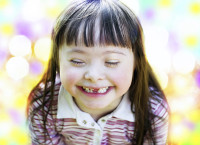It's a New Day in Public Health.
The Florida Department of Health works to protect, promote, and improve the health of all people in Florida through integrated state, county, and community efforts.


Conditions
Contact the Florida Department of Health
- 850-245-4465
- BE@flhealth.gov
-
Mailing Address
Florida Department of Health
4052 Bald Cypress Way, Bin A13
Tallahassee, FL 32399-1721
Prenatal and Postnatal Diagnosis Conditions
Florida cares about its residents with unique abilities and strives to help each one succeed. This site will provide you with stories, information, and resources to help you as you start this journey. Click on the Conditions drop down tabs below to get started.- Anencephaly
- Angelman Syndrome
- Apraxia of Speech
- Attention Deficit Hyperactivity Disorder
- Autism Spectrum Disorder
- Cerebral Palsy
- Congenital Heart Defects
- Cystic Fibrosis
- Cytomegalovirus
- Down syndrome (Trisomy 21)
- Epilepsy
- Fetal Alcohol Spectrum Disorder
- Fragile X Syndrome
- Hydrocephalus
- Mental Health Disorders
- Phelan-McDermid Syndrome
- Prader-Willi Syndrome
- Smith-Magenis Syndrome
- Spina Bifida
- Tourette's Syndrome
- Trisomy 8
- Trisomy 9
- Trisomy 13 Patau Syndrome
- Trisomy 18 Edwards Syndrome
- Williams Syndrome



Connect with DOH